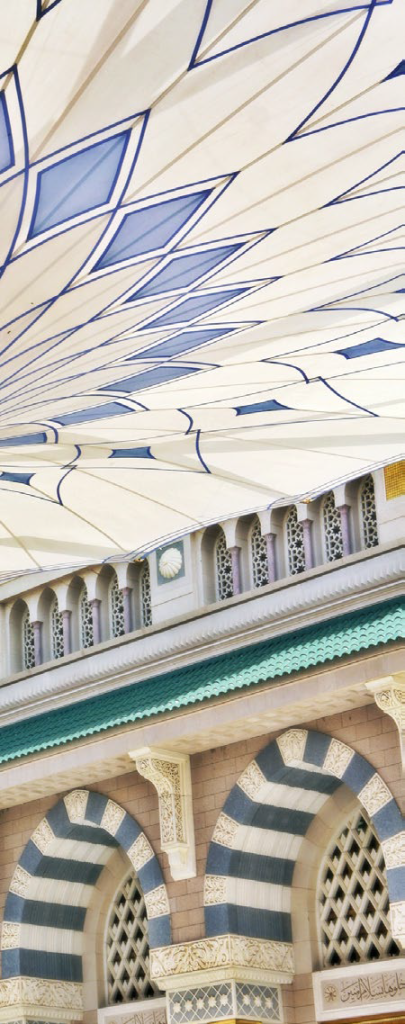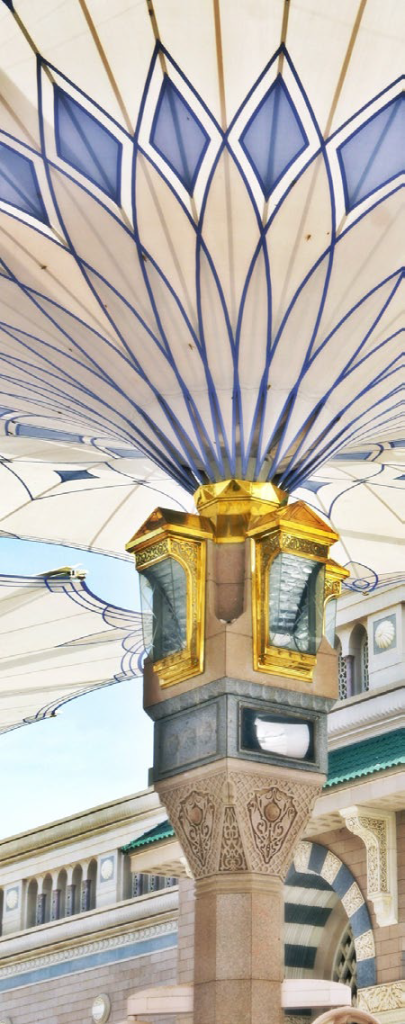Where do we go from here now that Islamic banking and finance (IBF) has become a credible proposition for sustainable business? Should we continue to emphasise on its Islamic identity and the associated nomenclature or move on to pitch it as any other form of business competing in the market? There are certain sectors where Islamic identity is required, whether in name, brand or culture. Lack of emphasis on Islamic identity may result in the complete change in the nature and character of the organisation.
For example, Aligarh Muslim University in India was developed as a university where Muslims (and of course non-Muslims) could be trained in different academic disciplines. Its “Islamic” character was never emphasised upon, although its “Muslim” identity was a differentiating factor. Consequently, this university is now like any other universities in India, which admittedly also has academic departments for teaching and research in different aspects of Islam. Darul Uloom Deoband, on the other hand, was set up as an Islamic seminary specialising in Islamic sciences and has remained as such after more than 150 years.
With the giants like Al Rajhi Bank, Dubai Islamic Bank and Kuwait Finance House, with operations in multiple jurisdictions, and in most cases sovereign backings, no analyst would seriously question longevity and future survival of this phenomenon. IBF is going to stay. Calculator and Quran have proven to be compatible. Burkinis and beaches have embraced each other!
Relevance of IBF to socio-economic developments is admittedly limited. Like conventional banking and finance it remains an elitist business aimed at offering services to the upper segments of the society with economic entitlements and strength in business. Islamic bankers can be seen rubbing shoulders with those wearing Hublot on their wrists, wearing Pal Zileri, Armani, Dolci & Gabbana, etc, scribbling with Mont Blanc pens, playing with expensive electronic gadgets, and hobnobbing on the highest floors of Shard in London and Burj Khalifa in Dubai.
There shouldn’t be an iota of doubt that Islamic banking is banking first, and its Islamic character is secondary. Most of the customers are not exclusively motivated by their Shari’a credentials but also of other commonly influencing factors in bank choice, like service quality, ease of location, and the general reputation of a bank, etc
IBF is going to stay. Calculator and Quran have proven to be compatible. Burkinis and beaches have embraced each other!
Muslims should forget about banks and come up with something else that is more genuine and disruptive in nature. But perhaps this will never happen, as intellectual slavery is widespread in Muslim lands, where parrots are now uttering words like FinTech and Bitcoin and God knows what, because all these developments have come from the West. Where mimicry is revered and rewarded, authenticity remains rare and remote.
Any further developments in IBF from here will strengthen its banking aspect more than its Islamicity. It will emerge as more money lending than financing of business activities. The Islamic bankers will continue to get excited on the introduction of practices like tawarruq, as has been the case even in markets like Pakistan where some of the most conservative Shari’a scholars of the world have been seen defending the introduction of tawarruq, celebrating it, and their followers dancing in ecstasy. That’s where IBF is moving all over the world.
Those who have visited or lived in Cambridge must have come across Cambridge Building Society’s branch in the City Centre (opposite to Emanuel College). This must remind us that financial services still have scope outside banking. Building Societies receive deposits and offer all the basic “banking” services outside the banking sector. Of course, as the name may suggest, these are mutual organisations to allow their members to buy homes through access to financing from a common pool.
If IBF have to move away from its current position as banking institutions and progression towards money managers, it should look for a structure outside banking. Pakistan developed the most beautiful model of mudaraba business, which was undoubtedly a “double-helix” structure for Islamic finance, but it hasn’t been developed further. Nevertheless, mudaraba business in Pakistan provides an excellent starting point for Islamic finance to develop further. The banking model is bound to kill Islamicity of Islamic banks.
To conduct mudaraba business in Pakistan, it is a regulatory requirement to first set up a mudaraba management company as a limited company registered with Registrar of Mudarabas at the Securities & Exchange Commission of Pakistan (SECP). The mudaraba itself is a separate entity that must be floated on Pakistan Stock Exchange. All the investors are required to invest by way of buying shares in the listed mudaraba, which may be of two types: Specific purpose and the ones set up for any authorised business activity. Similarly, they can be set up for a given time period or may exist perpetually.
The investors receive return in the form of frequently paid dividends – profit or loose depending on the movements in market prices of shares. There are no profit equalisation or investment risk reserves, making the practice of mudaraba in this context very different from what Islamic investment accounts offered by Islamic banks.
Mudarabas are allowed to raise further capital in the form of Musharaka Investment Certificates that mudarabas/mudaraba companies issue without having to list them on the stock exchange. The Musharaka Certificate holders receive returns based on the profitability of the business.
There are scores of other examples of financial intermediaries outside banking, but Islamic bankers have decided to be in bed with conventional bankers. While this marriage has not been entirely unhappy, there is a need to improve the relationship. More importantly, a polygamous solution may serve the purpose. In addition to the current model of Islamic banking and finance, a new non- bank model needs to devise to ensure more authenticity and independence of Islamic finance.
Although need for setting up more Islamic banks may still be argued, it will be more useful to set up murabahas (e.g., H.
Karim Bakhsh Murabaha) for financing of household items, mudarabas and joint stock companies based on musharaka for business development, ijaras for property and vehicle financing, qard hasan-based ROSCAs for collective savings and loan programmes. Muslims should forget about banks and come up with something else that is more genuine and disruptive in nature. But perhaps this will never happen, as intellectual slavery is widespread in Muslim lands, where parrots are now uttering words like FinTech and Bitcoin and God knows what, because all these developments have come from the West. Where mimicry is revered and rewarded, authenticity remains rare and remote.

This Is The New Year’s Resolutions For 2018 If You Are In Islamic Banking And Finance
With every New Year comes a new slate. So as we prepare to bid farewell to 2017 and welcome 2018 with open arms, the time has come to contemplate our New Year’s resolutions.
Sure, you’ve got your usual go-to resolutions, such as exercising more, spending more time with family and friends, and focusing on your personal well-being.
But for this coming year, you only need one New Year’s resolution if you are an Islamic banker or working in the Islamic financial services industry – COMMITMENT TO AUTHENTICITY.
Wondering how this will help accomplish goals of Islamic banking and finance (IBF) and your personal ambitions? Here are some of the benefits you and the industry will reap when you are committed to authenticity.

IBF will have its true identity
It’s tough to live someone else’s life except if you are an actor (or actress). Only actors earn name, fame and money when they perform in accordance with the characters created by scriptwriters and envisioned by producers and directors. But even actors like to be known as Kevin Costner and Angelina Jolie, and not the characters they play. Islamic banking cannot continue to walk using the crutches of conventional banking and finance. Being authentic means IBF will have its own structures, products and services. As Islamic bankers, you will not be selling KFC burgers wrapped in halal bags.
- You will get out of your comfort zone
Everyday routines in Islamic banks and financial institutions leave you feel like you’re stuck in a rut. Pursuit for authenticity will allow you to break the cycle and think about creating something new, more useful to your clients, and of more value to your shareholders. This will obviously require putting more effort and energy but benefits will start creeping in soon. Make this happen in 2018 for you.
- You will earn more money and respect
Being authentic is not an easy task. You will have to innovate. As a successful innovator, you will earn more for you and your family. This will also bring respect to you personally.
- IBF will grow in size and more importantly in scope
Only authentic innovation can bring sustainable growth to IBF; otherwise it will gradually die down, as a movement that promised change. The recent slowdown in the industry may just be an early sign of degeneration! Make 2018 a year of change to recapture growth momentum.
- You might get a new and better job
It is very likely that pursuit of authenticity may lead you to a better job and a twist in your career. So, just get ready for an eventful 2018.
It’s not easy to get started, so if you need some encouragement, read previous issues of ISFIRE (available on www.isfire.net and through www.issuu.com). Also consider writing on the need for authenticity in IBF for ISFIRE and/or some other publications. The best article on the need for authenticity in IBF to be published in ISFIRE in the six issues of 2018 will entitle the winner 50% discount on the Participation Fee of Cambridge Islamic Finance Leadership Programme (Cambridge-IFLP) 2019.
The 2018 Cambridge-IFLP will be held on July 29-August 3, 2018, at Clare College, University of Cambridge. 35-50 middle and upper middle management staff of Islamic financial institutions are expected to come into residence at the second oldest college of the University of Cambridge for one week. There can’t be a better place to be in than Cambridge during this coming summer. If you haven’t booked a place, please do so as soon as possible, as the seats are getting filled rather quickly. For more information about the programme, visit our website at www.cambridge-ifa.net or contact kshehzad@cambridge-ifa.net



